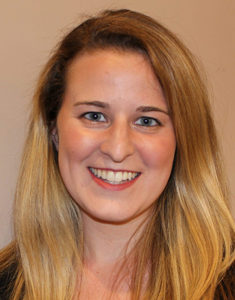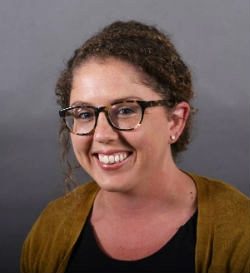Although traditionally understood as a childhood condition, autism is a lifelong disorder that presents in both children and adults. Many of the children with this disorder who were born during the last century and who are now reaching mid- and later-life did not receive formal diagnoses of autism. Further, increases in human longevity and the aging of the largest birth cohort (born between 1946-1964) in our nation’s history suggest that although prevalence rates of autism remain around 1% of the population, the sheer numbers of these adults stands to increase dramatically in coming years.

Danielle Waldron, MS

Caitlin E. Coyle, PhD
These adults on the spectrum who live much or all of their lives without diagnoses, often struggle to develop their personal identities. Due to their difficulties with communication and relationship development, they work tirelessly to manage their disorder in order to assemble lives that include stable employment, intimate social relationships and families. As one adult aging with autism describes (his or her) life without an autism diagnosis, “…something basic was missing: Not knowing how to think about and appreciate ourselves.”
We interviewed 30 adults over age 50 living with autism. From these life-course interviews, we uncovered significant barriers to successful aging that were related to social isolation. Seventy-three percent were unmarried, 50% lived alone, and we heard from many that friendships were few. As one adult with autism explained, “I don’t know if I have close friends. I wish I did. I just have a hard time with crowds and I don’t really know how to socialize. I don’t really know how to make friends.” Additionally, challenges with relating to others and communication barriers resulted in varied work histories leaving these older people with financial consequences. An adult with autism shared that, “at one point, I lost my job and she lost her job. We just experienced this hideous, you know, financial insecurity.” Individuals aging with autism also had regrets about their contributions to society, at least in part, attributable to issues with socialization. This sometimes manifested in underemployment despite high educational attainment; one woman with autism expressed, “I’ve been terrified of interviews. I’ve applied a couple places and oh my God, stress.” She decided to remain in her current job, which was outside the scope of her graduate studies because it “felt more doable than meeting all the new people and stuff” at a new job. Given these consequences of social isolation, it was not surprising that the importance of nonprofit organizations, service providers and other structured social environments was revealed in these interviews. An older woman with autism shared that she was moving closer to her temple, stating, “I didn’t find where I was living before very supportive. And I knew, I knew, I just knew there is a smaller community at the temple, a smaller temple that I feel like I would get more support and have more enjoyment with.”
For adults with autism, getting older means an accumulation of limited social networks and the aging of their own family system (i.e. frailty or death of parents and siblings), housing instability, and financial insecurity due to varied work histories. Although many adults with autism live independently, many live without strong social relationships and persons on whom they can rely for support. Thus, a network of community organizations that provide information about available services, peer-support opportunities, and social opportunities for adults aging with autism can be crucial to the successful aging of older persons with autism.
As gerontologists, we are calling on the aging and disability service networks to work collaboratively to develop appropriate and attractive models of community support for older adults with autism. The needs of older persons to remain living independently (housing, transportation, access to care, and opportunities for meaningful social engagement) are not unique to those living without a disability. However, to understand the preferences of persons with autism for how community support services are provided and to explore how these preferences are tied to their goals for later- cross-disciplinary partnership is crucial.
Caitlin E. Coyle, PhD, is a Research Fellow at the UMass Boston Center for Social and Demographic Research in Aging and Danielle Waldron, MS, is a UMass Boston gerontology PhD candidate at the UMass Gerontology Institute.




